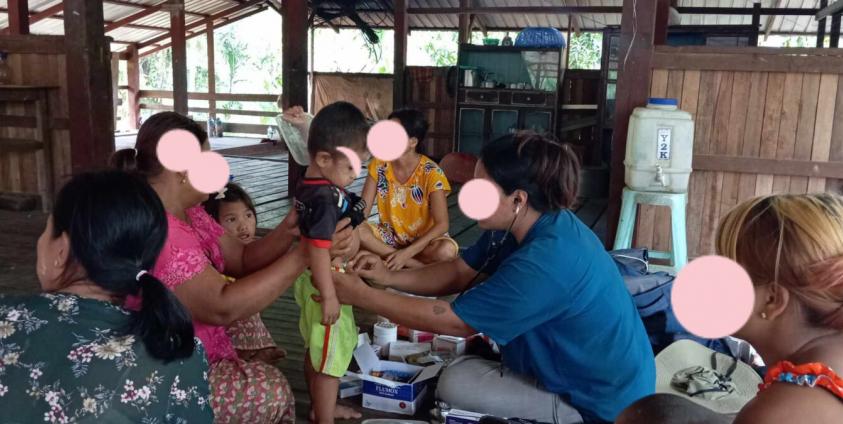A local aid organization has reported a notable increase in diarrhea cases among displaced individuals in the Tanintharyi Region this month.
An official from the Nway Oo Myittar aid group informed KIC that areas hosting displaced people lack essential resources such as clean drinking water, food, and adequate sanitation, contributing to the surge in diarrhea outbreaks.
"We are still assessing the exact circumstances of the outbreak. The combination of long-term refugees and recently displaced individuals poses challenges in implementing effective relief efforts. While current cases of diarrheal diseases have not yet reached cholera levels, they are most prevalent among adults over 20 years old," she noted.
In Tanintharyi Region, ongoing conflict in Dawei, Launglon, Thayetchaung, and Palaw townships has driven many residents to seek refuge in forested areas. Displaced individuals face difficulties accessing clean water and medical supplies due to restricted public access imposed by the junta. Furthermore, inadequate housefly-proof toilets in displacement camps are exacerbating the spread of diarrheal diseases, she added.
"The number of diarrhea patients is estimated to be in the hundreds. The rainy season's damp conditions in forested areas, coupled with inadequate sanitation, appear to exacerbate the spread of diarrhea. At present, our medical resources are insufficient even to treat common cases of diarrhea," she expressed concern.
Due to ongoing armed conflict in Tanintharyi Region, approximately 20000 long-term war refugees and nearly 40000 temporarily displaced individuals have been uprooted, totaling nearly 60000 displaced persons.
According to local media reports, the number of diarrheal disease cases across Myanmar in July has risen to approximately 700, based on available statistics.








